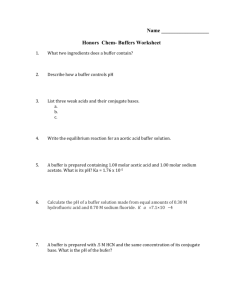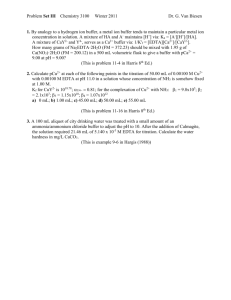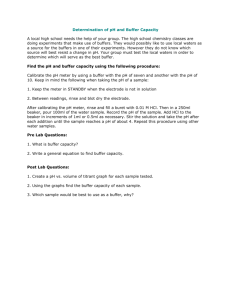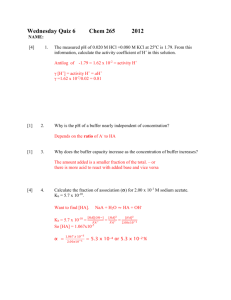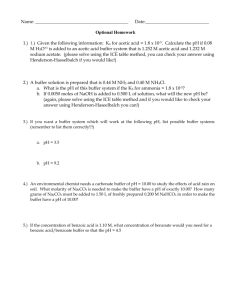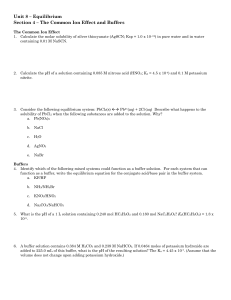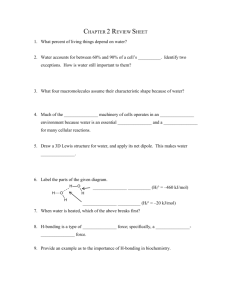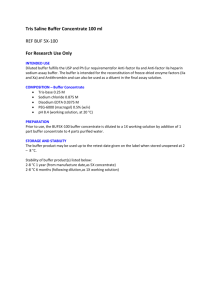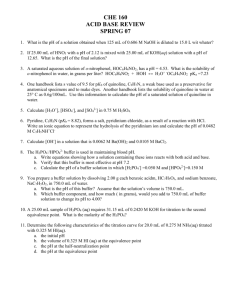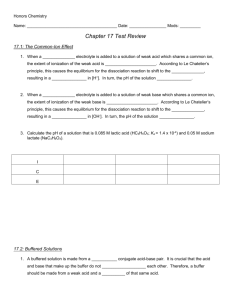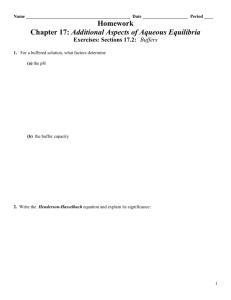Buffer Solutions and Quiz Review
advertisement
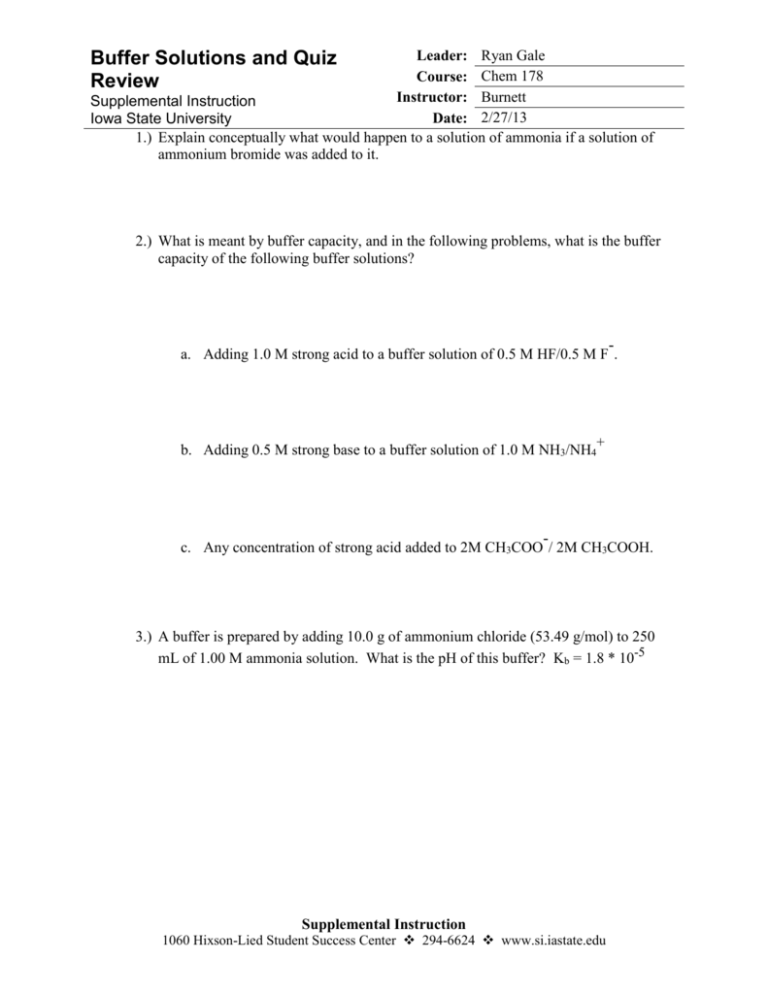
Leader: Ryan Gale Course: Chem 178 Instructor: Burnett Supplemental Instruction Date: 2/27/13 Iowa State University 1.) Explain conceptually what would happen to a solution of ammonia if a solution of ammonium bromide was added to it. Buffer Solutions and Quiz Review 2.) What is meant by buffer capacity, and in the following problems, what is the buffer capacity of the following buffer solutions? - a. Adding 1.0 M strong acid to a buffer solution of 0.5 M HF/0.5 M F . b. Adding 0.5 M strong base to a buffer solution of 1.0 M NH3/NH4 + - c. Any concentration of strong acid added to 2M CH3COO / 2M CH3COOH. 3.) A buffer is prepared by adding 10.0 g of ammonium chloride (53.49 g/mol) to 250 mL of 1.00 M ammonia solution. What is the pH of this buffer? Kb = 1.8 * 10-5 Supplemental Instruction 1060 Hixson-Lied Student Success Center 294-6624 www.si.iastate.edu 4.) Using the same information in problem 3, what is the pH if 50 mL of 0.5 M nitric acid is titrated into the buffer solution? Before calculating, write out the complete and net ionic equations for the reaction. 5.) Using the same information in problem 3, what is the pH if 75 mL of 0.5 M KOH is titrated into the buffer solution? Before calculating, write out the complete and net ionic equations for the reaction. Use the Henderson-Hasselbach equation. 6.) Draw a titration curve for the titration of a strong acid with a strong base. Based on the information below, label the titrant and titrate. Show these four regions: a. When no base has been added. b. When the base is the limiting reactant. c. The equivalence point. d. When the base is in excess.

